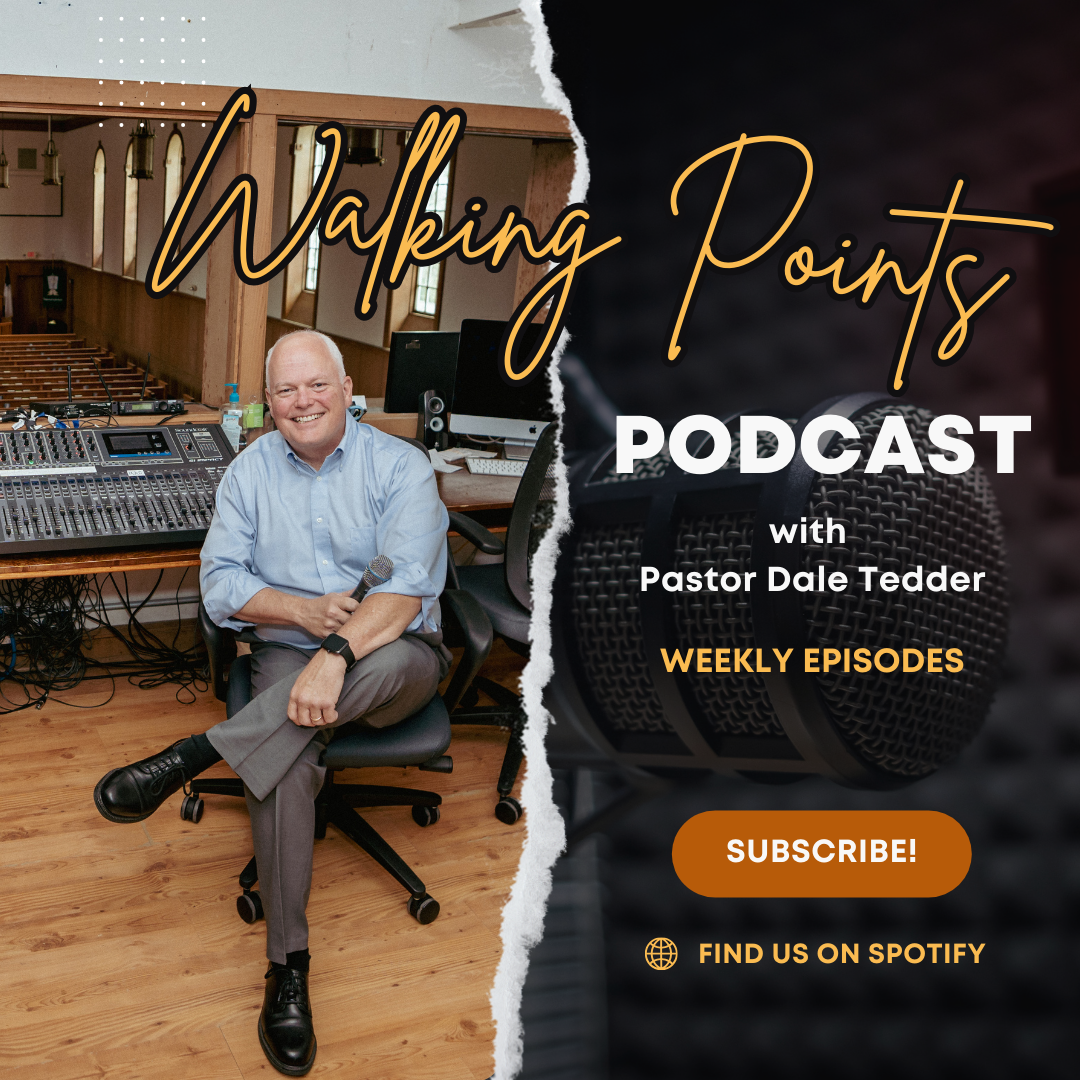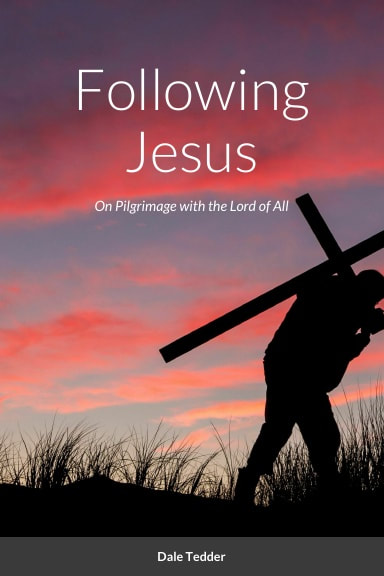|
Redeem Your Time
Ephesians 5:15-17 - Be very careful, then, how you live–not as unwise but as wise, [16] making the most of every opportunity, because the days are evil. [17] Therefore do not be foolish, but understand what the Lord’s will is. Here Today, Gone Tomorrow Scripture says we are like vapors which are here today and then, POOF, gone in an instant. Some of us may live to the national average or even past it. Others will not live that long. Whatever the case may be, Scripture reminds us, “man knows not his time.” Therefore, since no one knows when they will be called home, doesn’t it make sense to make the most of every day as though it was our last? Have you ever been asked what you would do if you only had one week or month left to live? Often, when we’re asked such a question, we offer a sweet, sentimental, or even profound answer that stresses urgency. Yet, few “live out” their answers because they suppress the truth of reality and mistakenly believe they have an infinite supply of time and opportunities before them. In our Scripture, the Apostle Paul says this is unwise. Making the Most of Time Paul instructs us to be careful in how we live. He says we need to be wise, not unwise, and make the most of every opportunity. Many of the great saints of Christian history referred to this as, “redeeming the time.” Brother, your life is a gift from God. You are called to be a steward of it. In a real sense your life is not your own. In Romans 12, the Apostle Paul said followers of Christ must offer themselves as living sacrifices to God. He lived during Israel’s sacrificial system in which the animal “gave up its life” on the altar. If we are called to be living sacrifices, we must daily put ourselves back on the altar before God in dedication to him, because living sacrifices tend to crawl off the altar by the end of each day. There is cost involved here to be sure. To give ourselves to the Lord in this way will require sacrifice, commitment, and self-discipline. To redeem the time we have been given, to make the most of every opportunity, we must change the way see and think about our daily lives. A change of perspective is required. An Eternal Perspective Needed God can be glorified in our most mundane tasks. Whether we are driving to work, mowing the yard, or wrestling with our children, we can do so to God’s glory (1 Corinthians 10:31). What matters is the motivation of our heart. Martin Luther is attributed as saying a cobbler who makes excellent shoes on Monday glorifies God as much as the pastor who preaches the Gospel on Sunday. Both require an eternal perspective and motivation that transcends themselves. Isn’t it a relief to know you can glorify God without necessarily moving to the other side of the world as a missionary or becoming an ordained pastor? You don’t have to be doing something “religious” to redeem your time. The Apostle Paul said whether you eat, or drink, or whatever you do, do it for God’s glory. What’s more ordinary than eating and drinking? What you are doing is not as important as why and how you are doing it. So, redeem your time. Walking Points
Prayer All-wise Father, you have told me in your Word to number my days so I may have a heart of wisdom. You want me to seek wisdom and live my life in such a way that I may make the most of every opportunity. You know better than I how often I have failed in this pursuit. I don’t wake up each day planning to fail at this, and yet by not better preparing I often fail by default. Please forgive me. Fill me with your Spirit of wisdom and give me not only a desire to live each and every day wisely for you, but enable me to do so. Help me to prepare on the front end so I may be ready to make the most of each opportunity you present me. Most of all, let my thoughts, words, and deeds be done for your glory. In Christ I pray. Amen.
0 Comments
CLICK HERE to listen to this week's devotional on the Walking Points Podcast, or listen to it on your favorite podcast platform. (For this devotional, there are two podcast episodes!!!) There's always extra content on the audio version that I pray will bless you. Autopilot Have you ever caught yourself cruising through life, somewhere between autopilot and sleeping at the wheel? “Wise” would not be a word we would use to describe ourselves during those lapses of intentional living. The Apostle Paul addresses this very thing in Ephesians 5. Earlier in Ephesians, Paul dealt with how those who claim to love and follow Christ ought to live. He wrote, Ephesians 4:1 – …I urge you to live a life worthy of the calling you have received. Ephesians 5:1 – Be imitators of God, therefore, as dearly loved children Ephesians 5:8, 10 – For you were once darkness, but now you are light in the Lord. Live as children of light… [10] and find out what pleases the Lord. (Emphases Added) On Purpose Living Paul taught clearly in those verses that there’s nothing casual or accidental about living the Christian life. It takes purpose, commitment, and intentionality. In light of those verses, let’s take a deeper look at how Paul described this lifestyle in Ephesians 5. In verse 15, Paul wrote, Be very careful, then, how you live–not as unwise but as wise, How are you doing on that count? Does that verse describe how you live on any given day? Perhaps it does portray many areas of your life. But how about your faith? Are you “very careful” in how you walk with Christ? I’ve discovered something about myself. I’ve noticed when I “don’t have time” to spend in prayer or in reading, studying, and meditating on God’s Word in the morning, I’m usually not very “careful” in how I live throughout the rest of the day. 1 Peter 5:8 says, Be self-controlled and alert. Your enemy the devil prowls around like a roaring lion looking for someone to devour. When I’m not being careful in my walk with Christ, I become a sitting duck for the devil to devour. It becomes much easier for me to fall prey to the temptations in my life. That doesn’t mean God has abandoned me. Yet it does indicate I’m not prepared for what the day may bring. It’s as though I’m choosing not to wear the full armor of God. I would never say that was my motivation, but that’s the result. The word “careful” in our text means “accurate and exact.” It carries the idea of closely examining or investigating something. In this case, Paul is talking about our “walk” with Christ or living the Christian life. Learn from Poor Pilgrim My favorite book, outside of the Bible, is Pilgrim’s Progress. The first part of the story tells us about a man who discovered his great need for Christ and how he came to faith. However, most of the book focuses on the pilgrim’s pursuit to live the Christian life after he came to Christ. Chapter after chapter reveals to us through the pilgrim’s journey what happens when he’s not being “careful in how he lives.” We watch helplessly as he makes mistakes, takes wrong roads, listens to bad advice, and often ends up in gut-wrenching predicaments. Brothers, we shouldn’t laugh at the poor pilgrim because his experience is ours. Through the smallness of our daily surrenders to sin and temptation, we too veer off the road, on one side or the other, and end up miles from where we should be. When we do such things, we reveal we’re not “being careful in how we live.” Where We Find Wisdom Paul next provides substance to what “being careful” as Christians looks like. At the end of Ephesians 5:15 he writes, Be very careful, then, how you live–not as unwise but as wise, This verse is tied to verse 17, which says, Therefore do not be foolish, but understand what the Lord’s will is. If you want to be wise, you need to understand what the Lord’s will is, and then do it. Paul’s exhortation to “be careful” by being wise and not foolish is not an ivory tower academic or intellectual exercise. The word “wisdom” in Scripture means “skill for living.” We discover and acquire this skill as we understand what the Lord’s will is and, in his power, obey it. If you don’t know what pleases or displeases God, then it is awfully hard to please God. God isn’t glorified by our ignorance and foolishness. We show we’re wise when we understand what God’s will is. And once we understand it, we then must do it. Listen to God Romans 12:2 explains how we can learn that. Observe these words, Do not conform any longer to the pattern of this world, but be transformed by the renewing of your mind. Then you will be able to test and approve what God’s will is–his good, pleasing and perfect will. A good question here would be: How do we renew our minds? One key way is to regularly read, study, and meditate upon God’s Word. So often in prayer we want to do all the talking. We essentially say things like, “Dear God, here’s my list of things I need you to give me or fix for me. Amen.” That’s often what our prayers sound like. There is certainly a place for bringing God our needs. Of course there is. But a transformed life and renewed mind happen as we listen to God. And we listen to God as we interact with his Word, whether it’s in private devotions, worship on the Lord’s Day, or in a Bible study with a smaller group of believers. I’m able to pray much more effectively when I know what God’s will is, when I know what pleases him and brings glory to his name. Living wisely, the way Paul has in mind, takes place once we consider what God has said on a particular subject and then act on it. That’s what it means to “be careful” and to “live wisely.” We’re called to be very careful in how we live. We’re called to be wise and not unwise. And we become wise as we understand what the Lord’s will is and then do it. Walking Points · What are the areas of your life in which you’re living most carefully? · What are you doing in those areas that help you live wisely? · What are the areas of your life in which you are living least carefully? · What seems to be the main obstacle that is keeping you from living more faithfully in those areas? · Are you living carefully, wisely, and intentionally in the area of your faith? · What are two things you could do to help you grow wiser and more careful as a Christian? Come up with a plan and ask two friends to hold you accountable to it. Prayer Hit with a Blunt Object
Have you ever met a person who believed they were given the spiritual gift of bludgeoning people over the head with their “honesty?” Are you such a person? Such people appear to be focused only on what they “think” their intention is, which, as they might put it, is... “just being honest.” They wield their “honesty” like a “Get out of jail free card” to say what they want, when and how they want to say it. They seem to think they can be as offensive as they desire, as long as they follow their remarks with, “Hey, I’m just being honest.” Or, as others might put it, “I’m just keeping it real.” Once this magical incantation is invoked, at least to them, they should be absolved from all they’ve just said, regardless of how hurtful or insulting it may have been. Three Helpful Questions Perhaps you have heard the following questions before, but I wanted to share them because I have found them helpful in my own life. These are questions I ask myself before I decide to share my own unsolicited “honesty” with others. 1.) Is it true? Obviously, if you’re going to pass on your thoughts to someone else, you should be communicating the truth. Whether it’s objective truth, or even the truth of your opinion, it should be true. The 112th question and answer of The Heidelberg Catechism puts it this way: Question: What is required in the ninth commandment? Answer: I must not give false testimony against anyone, twist no one’s words, not gossip or slander, nor condemn or join in condemning anyone rashly and unheard. Rather, I must avoid all lying and deceit as the devil’s own works, under penalty of God’s heavy wrath. In court and everywhere else, I must love the truth, speak and confess it honestly, and do what I can to defend and promote my neighbor’s honor and reputation. While this is certainly helpful for us in thinking through our communication with others, this ought not be all there is to it. There are at least a couple more things for us to consider. 2.) Is it kind? Are your remarks bearing the fruit of Christian kindness? Are they words that will be a blessing and encouragement to the other person? Even if hard words must be spoken, we can still say them in such a way that will make it clear to the person to whom we’re speaking that we have their best interest at heart and not merely our personal agenda. 3.) Is it necessary? Does the person you are “being honest” with need to know you don’t like what they’re wearing, or how they’re raising their children, or how they decorate their house for Christmas? We may desperately want to share our opinions on all those issues and more, but that’s not the same thing as their need to know it. As a Christian, truth and honesty should be paramount, yet not for the sake of merely sharing our own opinions, but for the sake of helping the other person. If God is not glorified in the transaction of honesty and truth, and if the purpose of the exchange is not the genuine benefit of the other person, then we’re not doing much more than sharing our opinions for the sake of lifting up ourselves. In which case, we should just keep our opinions to ourselves. Walking Points
CLICK HERE to listen to this week's devotional on the Walking Points Podcast, or listen to it on your favorite podcast platform. There's always extra content on the audio version that I pray will bless you. Galatians 4:9 - But now that you know God–or rather are known by God–how is it that you are turning back to those weak and miserable principles? Do you wish to be enslaved by them all over again?
A Change of Address When we lived in darkness – when we were of the world – it made perfect sense that we lived as the world lived. We were a part of its system. You might say it was the very air we breathed. But when we were delivered from that bondage, ignorance, and darkness, we were made into something new. Paul described us as new creations. To paraphrase the Apostle elsewhere, “When I was a worldling, I talked like a worldling, I thought like a worldling, I reasoned like a worldling. When I became a new creature in Christ, I put worldish ways behind me.” It is therefore sad to observe how the Apostle had to address the Galatian believers and ask them why they were turning back to their old, dead ways. It’s difficult to admit how shortsighted we can be on a daily basis. If we don’t keep Christ daily before us, pursuing him with all God’s grace and our might, we inevitably find ourselves drifting back to the world and its ways of thinking. And such worldish thinking will soon lead to worldish living. What’s so frightening about this process is that even as it happens, we don’t seem aware that we are becoming enslaved to those “weak and miserable principles” all over again. Why Do We Do This? The question is indicting: Why would we ever want to go back to such thinking and living once we have been freed from it? Why do we seem to prefer bondage to freedom at times? It’s almost comical how we, like the Israelites, begin romanticizing how great the leeks and onions were in Egypt and forget about the fact that we were slaves there. Why do we do this? There are probably many good answers. No believer, I hope, truly thinks the world is preferable to the things of God. I don’t think being out of shape is preferable to being healthy. But one skipped workout at a time – over a period of undisciplined living – and a person will find himself struggling to walk up a flight of stairs. That was never the intention, but it was the consequence. Similarly, a little disobedience and sloth here and there and one day a person will wake up terribly out of shape for the Kingdom. In truth, they will be downright unfit for it. I’ve discovered in my own life that I tend to do the things I want to do. It’s no more complicated than that. I may dress it up in elaborate excuses and rationalizations, but at the end of the day that’s all they are. Can you relate to that? Don’t Ignore God’s Means of Grace Thankfully, those who are genuinely in Christ will not be able to return to their old ways without feeling the disciplinary rod of the Holy Spirit. God is not content to watch his children become remolded in the world’s image. By God’s magnificent grace, the smoke detector goes off long before the fire blazes out of control. God awakens and disciplines those who are his own and gets them/us back on track again. But even here he does not “do” all the work for us. We can still choose to sleep in instead of pray and study. We can play instead of worship on Sunday mornings. Fill in the blank with those temptations that continue to call you back to your old life. We will have those choices ever before us. But if you cry out to your loving Father for help, his grace will abound once more to rescue you from your chains. And if you rely on him daily and practice those things he promised will make you spiritually healthy, you may find you have to be rescued less often. Walking Points
Prayer Loving Father, you have redeemed me and adopted me into your family. You desire that I imitate you in my daily life. But all too often I feel the pull of my old life, the lure of sinful desire. Those weak and miserable principles seemingly cast a spell on me. Show me how awful, ugly, and untrue they really are and how they will only entrap and enslave me to a horrible bondage. Please let me see how wicked they really are before I give myself to them. Enable me by your grace to grow in grace. Control me with your Spirit so that I will both desire to, and be able to, live fully for you. In the name of Christ, I pray. Amen. How Many Years of Experience?
Age does not guarantee wisdom. Not even experience guarantees wisdom. There is nothing magical about the lapse of time in one’s life that causes him to become a sage for the ages. We probably all know someone who doesn’t have 25 years of experience at his job, but instead, has experienced the same one year, 25 times in a row. No growth or maturation has taken place. This was the case in the story of Job. Job’s three friends, older men in the community, were all sharing their insights as to why poor ol’ Job was experiencing such suffering. Each one was way off the mark. Finally, the younger, less experienced Elihu, who had been respectfully silent, observing the back-and-forth of his elders, could no longer sit idly by and allow such error and ignorance to prevail. He responded, “I am young in years, and you are old; that is why I was fearful, not daring to tell you what I know. [7] I thought, ‘Age should speak; advanced years should teach wisdom.’ [8] But it is the spirit in a man, the breath of the Almighty, that gives him understanding. [9] It is not only the old who are wise, not only the aged who understand what is right. (Job 32:6-9) Elihu then went on to provide his diagnoses of Job’s situation. The Real Source of Wisdom We learn a very important principle from Elihu: Wisdom does not come automatically with age. Some folks never seem to learn. Instead, true wisdom comes from God himself. Wisdom, God’s wisdom, must be desired and intentionally sought. That takes effort, self-discipline, and commitment. But it will be found only in this way. The chief source from which we gain godly wisdom is God’s Word. Psalm 119:99 says, “I have more insight than all my teachers, for I meditate on your statutes. Psalm 119 is the longest chapter in the Bible and its focus, (almost exclusively so), is God’s Word. In that chapter, God’s Word is also referred to as his statute, law, precept, decree, and command. In each case it refers to God’s revelation of himself and his will to his people. His wisdom for the ages can be found therein. This is how he has chosen to guide us. Psalm 119:24 says, “Your statutes are my delight; they are my counselors.” Godly friends and teachers, empowered by God's Spirit and informed by God’s Word, are treasures. But it must be his Word that is the primary source for wisdom. I’ll take a mentor who has been seasoned by years of experience almost every time over a younger, less-experienced person, but especially if the former has walked with God during those years and sat under the tutelage of God’s Word. That’s where wisdom will be found. That’s also why we must “delight” in God’s Word each day – that we too might learn, grow, and one day be a source of godly wisdom for someone else. Walking Points
Prayer Gracious God, you are sovereign, good, and all-wise. You are in control of the universe you have made and know best how it works. You love me and have my best interest at heart. Furthermore, you not only have my best interest but know best how to bring it about in my life. Therefore, I will trust you. Thank you for the gift of your Word that provides direction for me to follow. I needn’t grope in the dark, tripping over obstacles, when your Word is such a radiant and trustworthy light in my life. In the name of the One who is the Light of the world, I pray. Amen. Proverbs 7:21-27
To the Cheese... It’s interesting how, in this Scripture, the unsuspecting man followed the prostitute to his demise. O how her beauty, flattery, and persistence wore him down. Yet he was an active participant in his own deception. Thus, he blindly, yet willingly, followed her to her home, supposing he was about to have the time of his life. Unbeknownst to him, he was marching toward his undoing. Observe the language…
Out of willful ignorance or naiveté, these three creatures fell prey to the traps set for them – a decision, so to speak, that would cost them their lives. Compound Effect We are the same. We may see great big obvious temptations for what they are. But the serpent’s craftiness is found in his subtleties. It is the consistent smallness of our daily surrenders to those subtleties that lead us into the slaughterhouse, the noose, the snare. A compromise here and there will have a powerful snowball effect in our lives. We often have no idea when we say “yes” to that first, small, seemingly insignificant trifle of a temptation, that it is the first step on a path that will lead to our destruction. We unwittingly pay a price that will cost us dearly – our very lives… our families… our ministries… and so on. I can’t help but think of the children’s song, “Be careful little eyes what you see. Be careful little ears what you hear.” For ultimately, we cannot plead ignorance. We cannot say we didn’t know the gun was loaded. God has given us his Word and Spirit to lead and guide us through our lives. Ponder the Walking Points questions below with some Christian brothers and ask the Lord for his grace to live faithfully as godly men. Walking Points
Ephesians 5:15-17 - Be very careful, then, how you live–not as unwise but as wise, [16] making the most of every opportunity, because the days are evil. [17] Therefore do not be foolish, but understand what the Lord’s will is. Here Today, Gone Tomorrow Scripture says we are like vapors which are here today and then, POOF, gone in an instant. Some of us may live to the national average or even past it. Others will not live that long. Whatever the case may be, Scripture reminds us, “man knows not his time.” Therefore, since no one knows when they will be called home, doesn’t it make sense to make the most of every day as though it was our last? Have you ever been asked what you would do if you only had one week or month left to live? Often, when we’re asked such a question, we offer a sweet, sentimental, or even profound answer that stresses urgency. Yet, few “live out” their answers because they suppress the truth of reality and mistakenly believe they have an infinite supply of time and opportunities before them. In our Scripture, the Apostle Paul says this is unwise. Making the Most of Time Paul instructs us to be careful in how we live. He says we need to be wise, not unwise, and make the most of every opportunity. Many of the great saints of Christian history referred to this as, “redeeming the time.” Your life is a gift from God. You are called to be a steward of it. In a real sense your life is not your own. In Romans 12, the Apostle Paul said followers of Christ must offer themselves as living sacrifices to God. He lived during Israel’s sacrificial system in which the animal “gave up its life” on the altar. If we are called to be living sacrifices, we must daily put ourselves back on the altar before God in dedication to him, because living sacrifices tend to crawl off the altar by the end of each day. There is cost involved here to be sure. To give ourselves to the Lord in this way will require sacrifice, commitment, and self-discipline. To redeem the time we have been given, to make the most of every opportunity, we must change the way see and think about our daily lives. A change of perspective is required. An Eternal Perspective Needed God can be glorified in our most mundane tasks. Whether we are driving to work, mowing the yard, or wrestling with our children, we can do so to God’s glory (1 Corinthians 10:31). What matters is the motivation of our heart. Martin Luther is attributed as saying a cobbler who makes excellent shoes on Monday glorifies God as much as the pastor who preaches the Gospel on Sunday. Both require an eternal perspective and motivation that transcends themselves. Isn’t it a relief to know you can glorify God without necessarily moving to the other side of the world as a missionary or becoming an ordained pastor? You don’t have to be doing something “religious” to redeem your time. The Apostle Paul said whether you eat, or drink, or whatever you do, do it for God’s glory. What’s more ordinary than eating and drinking? What you are doing is not as important as why and how you are doing it. Therefore, start praying for ways in which you can redeem your time in 2021.But don't forget to make the most of every opportunity you have today. Walking Points · What are some ways you unthinkingly waste your days and miss the opportunities God has for you? What are some reasons you do so? · How can you change the focus and motivation of your daily life from the temporal minutiae to an eternal perspective that seeks God’s glory? · What are three ordinary things you do daily that can be transformed by wisely making the most of them? · Share your ideas with someone you can trust to hold you accountable and will pray for you. Prayer |
Click image above to subscribe to my newsletter.
Dale TedderThanks for stopping by. Learn more about me, my ministry, and this website by clicking here. Please visit my bookstore
Click, Listen, and Subscribe to My Podcast
Updated: 2-5-24 Connect and/or Follow for more content...
The Book of Acts
Updated 2-28-24 Sermons
Updated 3-4-24 Categories
All
Click the image above to order this book and study guide about the most important person you will ever meet.
Archives
January 2024
Click image above to learn more about and order this follow-up to "Lord of All."
Listen, my son, and be wise, and set your heart on the right path: (Proverbs 23:19)
“Enter by the narrow gate. For the gate is wide and the way is easy that leads to destruction, and those who enter by it are many. For the gate is narrow and the way is hard that leads to life, and those who find it are few.
(Matthew 7:13-14) |










 RSS Feed
RSS Feed





